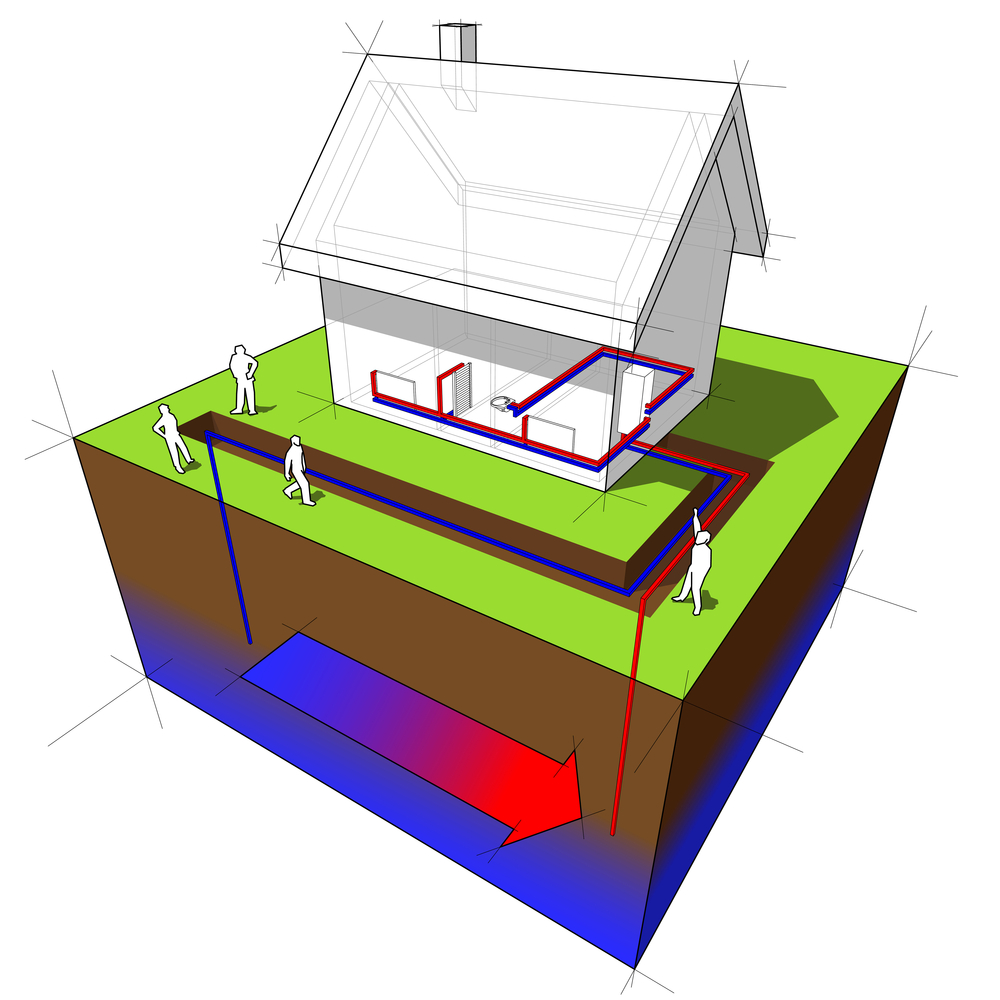 Along with forced-air, steam, and geo-thermal heating, hot water heating is one of the most common types of heating systems for homes and businesses alike. Just as its name implies, the heating is accomplished with hot water, but how it works is a bit more complicated.
Along with forced-air, steam, and geo-thermal heating, hot water heating is one of the most common types of heating systems for homes and businesses alike. Just as its name implies, the heating is accomplished with hot water, but how it works is a bit more complicated.
The process starts in a central boiler, where the water is heated until it is very hot. Then the hot water is moved through copper pipes towards different rooms. Originally this was done with gravity, but it took a long time to distribute the water, so today’s systems use a pump to get the water there faster. Once the water arrives at a room, its heat is transferred into the room. After the water cools enough to no longer be providing heat, it circulates back to the boiler to be reheated. An attached expansion tank gives the water room to expand and contract without damaging other parts of the system.
Types of Hot Water Heating
There are a couple different types of hot water heating. One is a radiant heating system. This method uses pipes embedded in flooring or heat panels in the ceiling to radiate the heat from the hot water into the room. The other system is baseboard heating. Units mounted along the walls near the floor radiate the heat from sets of small tubing filled with hot water. Water for either type of system can be heated using gas, propane, oil, or electricity.
As with all heating systems, there are pluses and minuses to both systems. Radiant heating is basically invisible because the system is installed in floors or ceilings, and the heat is evenly distributed throughout the room. However, this type of system can be costly to install. Baseboard heating is less costly than radiant, but can make furniture placement difficult since the units along the floor shouldn’t be blocked.
Benefits of Hot Water Heating
Both radiant and baseboard heating share many benefits:
- They provide radiant heating, which many people find more comfortable.
- They take up less room than forced-air systems.
- They create very little noise when running.
- The boilers used to heat the water are long-lasting.
- They are energy efficient, making them cost-friendly to operate.
- The heat is more controlled.
- No duct work is required.
- They don’t circulate dust or other allergens because there is no air movement required.
- Different rooms or zones can be heated to different temperatures with zone valves.
If you are interested in having a hot water or other heating system installed in your Central Kentucky home, or if your current system requires service, contact the professionals at ADA Heating & Air in Bryantsville, Kentucky. Our service area includes Lexington, Winchester, Harrodsburg, Danville, Versailles, Nicholasville, Lancaster, and Stanford, where we’ve been providing quality service to satisfied customers since 1984.